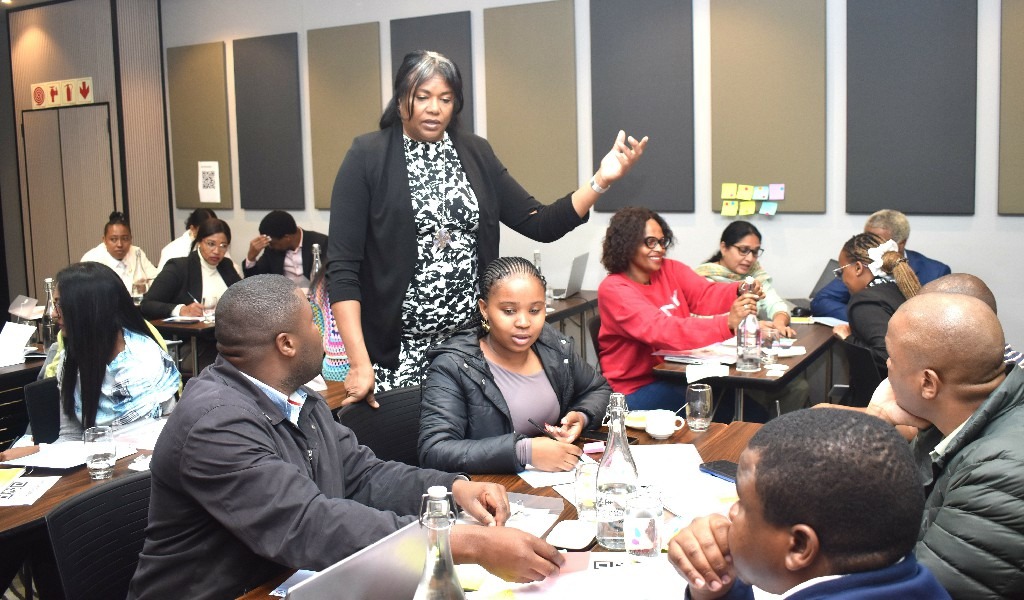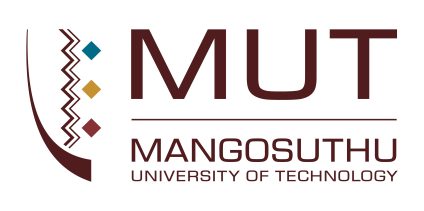
‘You can make money with all your research work. All you need to do is be creative about it.’ This was the vital message from Nicole Antoniette Smith, Associate Professor of Instruction in Analytics & Information Systems; Program Director, J’COB College Experience, Ohio, USA. Professor Smith was addressing MUT staff off campus, on the need for creative thinking with everything that they have or create to make money. The event was a creative Problem-Solving (CPS) workshop. The event was created by the Research Directorate’s Intellectual Property division. Professor Smith said MUT staff should not feel bad about being willing to make money; she had the same feeling but changed her views, making a switch from the usual to being a creative thinker, who will benefit from their creations.
Professor Smith took staff through phases, from easy steps to difficult steps, so they could consider things differently. “You will hear a click in your head”, meaning that they would have made a change. Professor Smith said that what was required was that people needed to start believing they could make the switch and start gathering the right information that would enable them to make the change. Her presentation was a structural approach to problem solving. “We are here to unlock the creativity in us. How can we bring creativity to the existing structure? You must exercise the creativity muscle so it will work. I only started using my creative thinking when I was doing my PhD,” Professor Smith said.
Zooming into the region of the academics, Professor Smith explained how academics could be empowered with skills they could use when teaching, to impart their students. Her presentation illustrated how academics could move from “simple”, to “difficult”, when teaching their students. And that academics needed to be creative with the outcome of their research.
About 50 staff members from different departments who attended the workshop appreciated the chance to sit for an informative workshop. Dr Vikash Jugoo, the Head Department of Information Technology and Communication (ICT), said he enjoyed the workshop. “It was not only practical, but also thought-provoking. I appreciated how the facilitator gradually guided us through the process of expanding our thinking. The way she helped us break down and reframe problem statements. That made it much easier to see the real issues and come up with better solutions,” Dr Jugoo said. Dr Jugoo said that what stood out for him was how the session balanced creativity with structure. “Often, creative workshops feel abstract; but this one offered a clear, usable framework,” he said.
Nonkululeko Malunga, a Research Intern from the Faculty of Natural Sciences, said that as part of her internship, she is tasked with identifying strategies for discovering researchable problems that can contribute to the future development of the Institution. Malunga said that before attending the workshop, she struggled to develop a clear strategy for pinpointing important problems to solve. “However, through the discussions and activities, I have gained valuable insights into effective methods for filtering and identifying significant research problems,” Malunga said.
The workshop directly supports MUT’s strategic objective of fostering a culture of innovation and entrepreneurship among staff and students. It empowered academics to contribute meaningfully to the University’s innovation agenda, including engagement with the Technology Transfer Office (TTO), potential patenting opportunities, and externally funded innovation challenges. Most academics expressed interest in applying the concepts in their research projects. The workshop has sparked ongoing conversations around innovation, turning research into commercial product.
